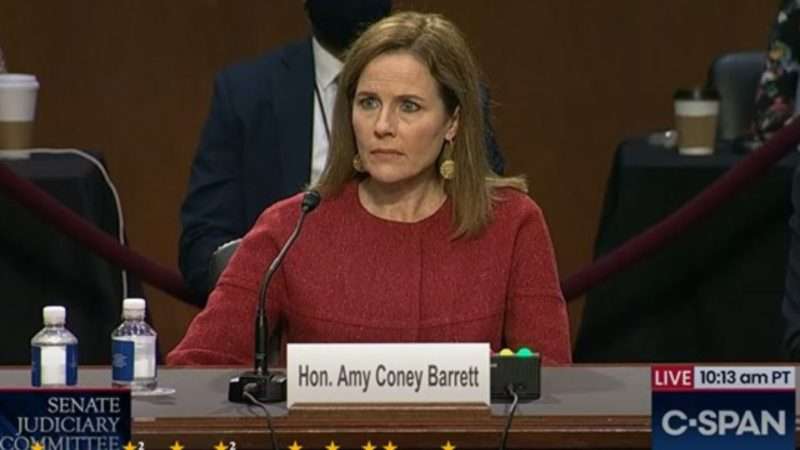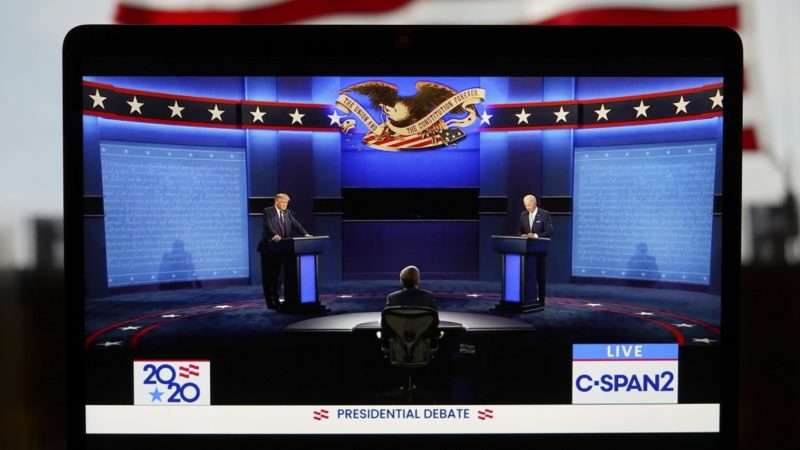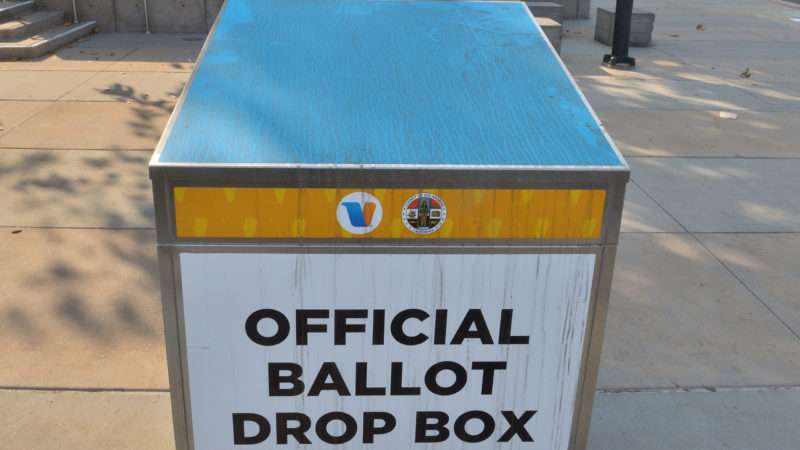Generations of law students are taught about the majesty of Brown v. Board of Education. As the story goes, Chief Justice Warren was able to craft a narrow, unanimous opinion, to ensure the opinion would be widely accepted. And, with Brown, the Court finally overruled Plessy and the separate-but-equal doctrine. Most casebooks do not describe what happened next. Most students do not learn about Brown v. Board of Education II. Most students do not learn about the massive resistance. Most casebooks do not include Cooper v. Aaron.
The truth is far more complicated. Chief Justice Warren was able to finagle a unanimous opinion that said very little. It didn’t overrule Plessy. It didn’t require immediate desegregation. The majority decision allowed the lower courts to supervise desegregation with “all deliberate speed.” And the standoff at Central High School in Little Rock, Arkansas demonstrated that the federal courts, standing by themselves, were feckless. Indeed, after the Court decided Cooper v. Aaron, school districts simply shut down rather than comply with court orders. (See my article, The Irrepressible Myth of Cooper v. Aaron). The Court’s assertion of judicial supremacy was met with silence. This decision, better than any other, reaffirms that the Court is the least dangerous branch.
But judicial nominees do not dare recite this actual history. During his first hearing, Judge Kavanaugh repeatedly brought up the mythicized version of Brown. Even when he was not asked about Brown. (He also repeatedly brought up the unanimous U.S. v. Nixon decision, which was a prelude to his Vance dissent.) Over and over again, he praised Chief Justice Warren for reaching a unanimous decision. Kavanaugh certainly knows the true impact of Brown. But he wouldn’t say it, because the myth signals the right virtues. Here is how Kavanaugh described Brown during a colloquy with Senator Grassley:
But Brown v. Board, as I’ve said publicly many times before, the single greatest moment in Supreme Court history by—in so many ways; the unanimity that Chief Justice Warren achieved which is a—just a great moment; the fact that it lived up to the text of the Equal Protection Clause; the—the fact that it understood the real world consequences of the segregation on the African American students who were segregated into other schools and stamped with a badge of inferiority.
(“Lived up to the text”?! Come on. The text speaks of equal protection, not equal treatment. The opinion did not engage the text at all. And it affirmatively rejected history.)
Judge Barrett refused to buy into this mythicized account of Brown. I encourage you to watch her colloquy with Senator Leahy. It runs from 9:41 through 13:50. (All things considered, I think Leahy is still one of the most effective Democrats on the committee; he has not lost a step.).
First, Leahy reminded Barrett that Judges Gorsuch and Kavanaugh said that the President would have to follow the Supreme Court’s judgment.
SEN. LEAHY: Now, I asked you last time what Justice Barrett would do if a President or even a Senator did not follow a Supreme Court decision. You declined. You said the question may come before you. I then asked you if the Supreme Court would have the final word. You stated the Supreme Court would have the final word as far as the lower courts are concerned. That surprised me, and it concerned me. I’ll tell you why. I asked Justice Gorsuch and Justice Kavanaugh those questions. I asked them what happens, and they made it clear that a President cannot refuse to comply with a court order, and the Supreme Court’s word is the final word on that matter. Justice Gorsuch and Justice Kavanaugh said that. So I would ask you this. Do you agree a president must follow a court order, and the Supreme Court’s word is final, or is the Supreme Court’s word only final as far as the lower courts are concerned?
Barrett’s original comments were exactly right. The Constitution does not give the Court the power to order the President. Perhaps the Court could assert that power. But it is an expansion of authority. I am not even sure the Constitution gives the Supreme Court absolute authority over the lower courts, but vertical stare decisis is a debate for another day.
In response, Judge Barrett segues, and explains that Gorsuch and Kavanaugh repeated the platitude that no one is “above the law.” But she explains that this platitude is just a platitude. No man is above the law, but not all men are subject to the same laws. The Constitution grants the President certain powers, privileges, and immunities, that regular people lack.
JUDGE BARRETT: Senator, I’m glad to have the opportunity to clarify from our conversation. First, I know that both Justices Gorsuch and Kavanaugh said that “no man is above the law,” and I agree with that.
Next, Judge Barrett goes where other nominee would not. She highlights how feckless the courts actually are:
JUDGE BARRETT: But I conversed with Senator Lee yesterday about Federalist 78, which says that courts have neither force nor will. In other words, we can’t do anything to enforce our own judgments. And so what I meant in the conversation with you is that as a matter of law, the supreme court may have the final word, but the Supreme Court lacks control over what happens after that. The Supreme Court and any federal court has no power, no force, and no will, so it relies on the other branches to react to its judgments accordingly.
She is 100% correct. The Court issues its judgments, but relies on others to enforce them. Everyone knows this fact to be true. But I do not recall a judicial nominee acknowledging this constraint on the courts. (Please email if I missed anyone).
Senator Leahy was disturbed by this comment. He then recounts a great story where he had lunch with Hugo Black during the early 1960s.
SEN. LEAHY: I remember as a young law student having lunch, our honor society had lunch with members of the Supreme Court. I sat with Justice Hugo Black. He told me what happened with Brown v. Board of Education. The Court knew that was going to be a very, very tough case, and what did they do? They waited until they had the unanimous opinion, because they knew that the President would have to, and the Congress would have to enforce their law. So let me ask you this. Of course the supreme court has no army. They have no force, but they do have a force of law, and is a President who refuses to comply with a court order a threat to our constitutional system of checks and balances?
Leahy echoed the mythicized version of Brown. But Barrrett will not accept this mythicized account. She explains that the massive resistance illustrated the weakness of Brown. She specifically referenced Cooper v. Aaron. And she managed to namedrop Orval Faubus from memory. You cannot cram that fact. She knew it on her own.
JUDGE BARRETT: Senator Leahy, I think the example of Brown is a perfect one in the sense that Supreme Court and Brown held that segregation violated the Equal Protection Clause. That was the law, but as you know, there was resistance to that decision, and so it wasn’t until the national guard came in and forced Governor Faubus to allow desegregation that it could happen because the Supreme Court couldn’t do so itself, and in Cooper v. [Aaron]—
Leahy interrupts again, and asks if the President can ignore a court order.
SEN. LEAHY: I understand that, but they made the order. And could a president—if a President refused to follow what they said, could that be a threat to our constitution form the government?
Judge Barrett refuses to accept the premise.
JUDGE BARRETT: Well, as I said, the Supreme Court can’t control whether or not the President obeys.
Once again, she is right. We would hope that the President would follow a Supreme Court judgment, but the Supreme Court has no control over that matter.
Alas, Judge Barrett took one misstep at the end. She recounted the common myth that President Lincoln ignored Chief Justice Taney’s order in Ex Parte Merryman
JUDGE BARRETT: Abraham Lincoln once disobeyed an order during the Civil War of a circuit court. So a court can pronounce the law and issue a judgment, but it lacks control over how the political branches respond to it.
Alas, she is wrong on the last part. President Lincoln never ignored an order from Chief Justice Taney in Ex Parte Merryman. Seth Barrett Tillman made this case, and I have yet to see anyone respond. Here, one Barrett can learn from another.
I am proud of Judge Barrett. She must have known this answer would create some vulnerabilities for her. but she gave it anyway. Moreover, this answer tells me a lot about how she understands the notions of judicial supremacy. She does not accept the mythical account of the all-powerful Supreme Court. This answer bodes well for the future.
One final fun fact. I recently re-watched the Dark Knight. There was a scene where the Joker, played by Heath Ledger, gets into a confrontation with members of a corporate board. One of the board members looked just like Pat Leahy. I googled it. It was Pat Leahy! He is apparently a huge Batman fan. He had cameos in Batman Forever (1995), Batman & Robin (1997), the Dark Knight (2008), the Dark Knight Rises (2012), and Batman v. Superman: Dawn of Justice (2016).
from Latest – Reason.com https://ift.tt/3j30SjR
via IFTTT




